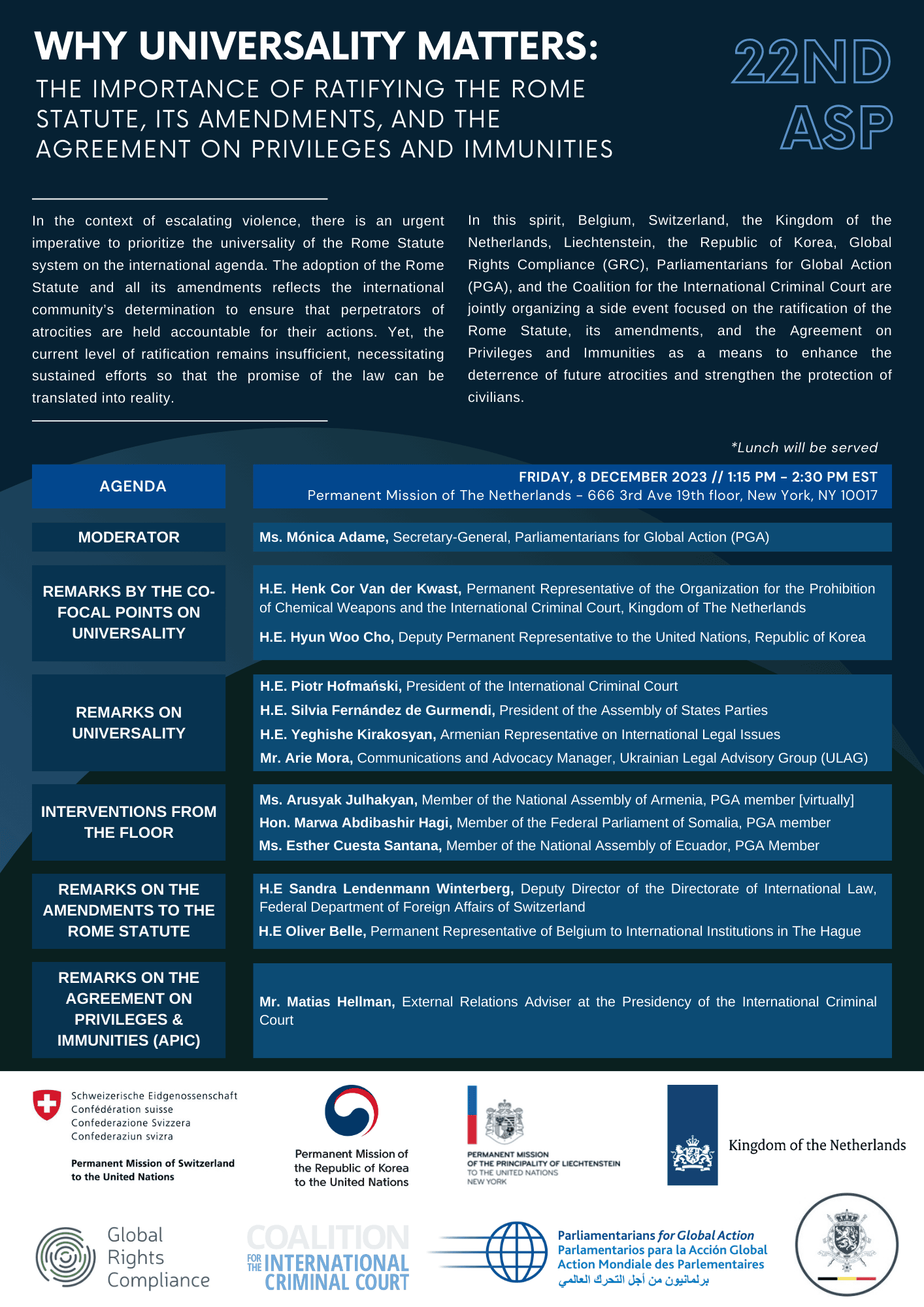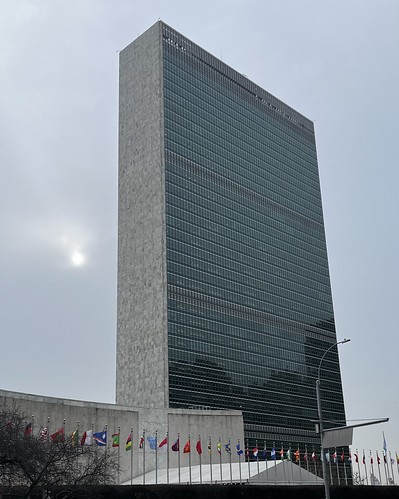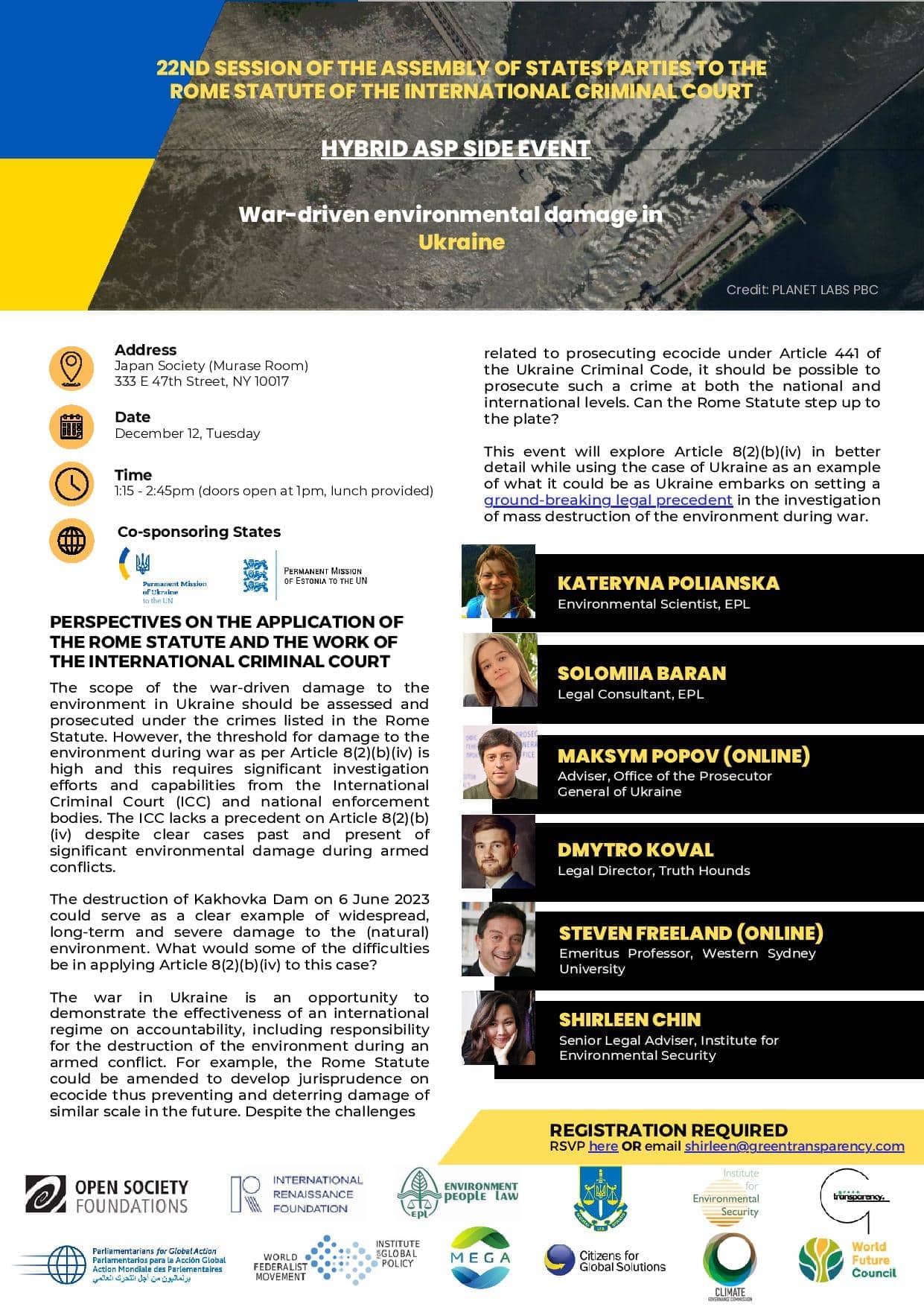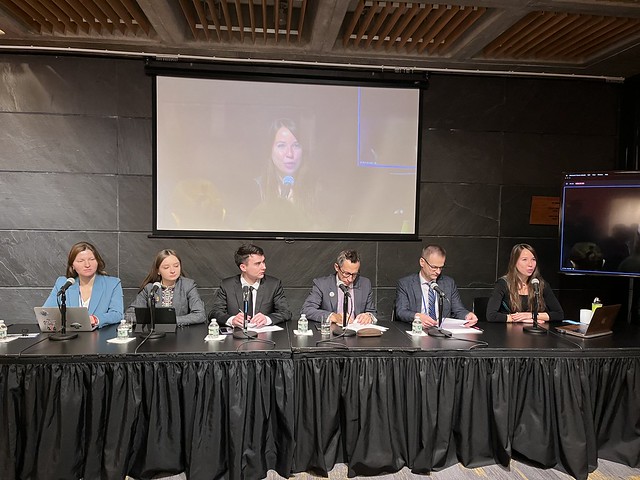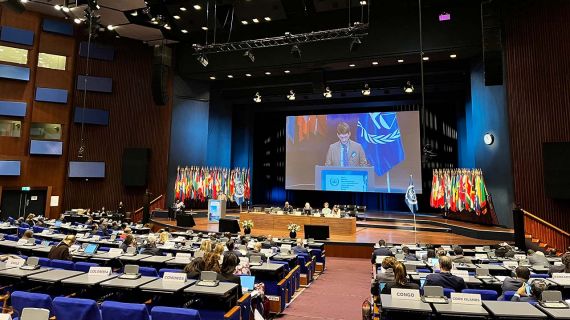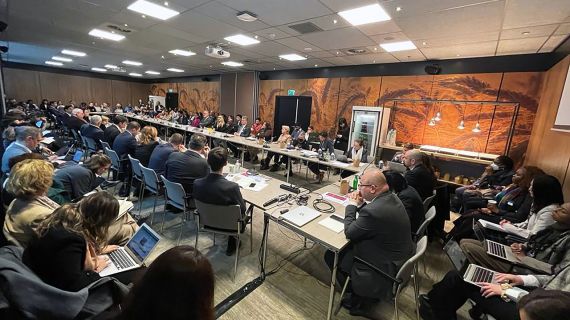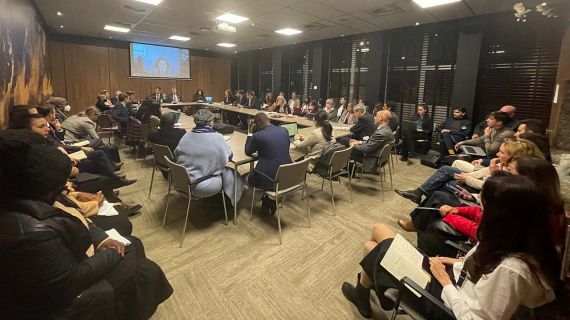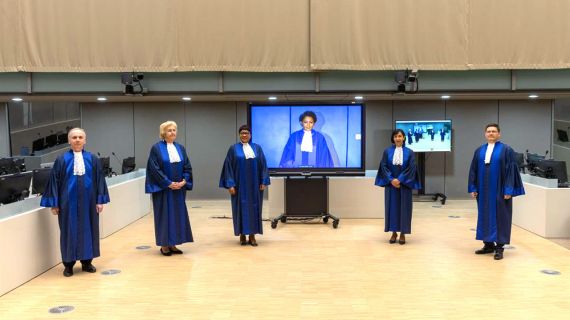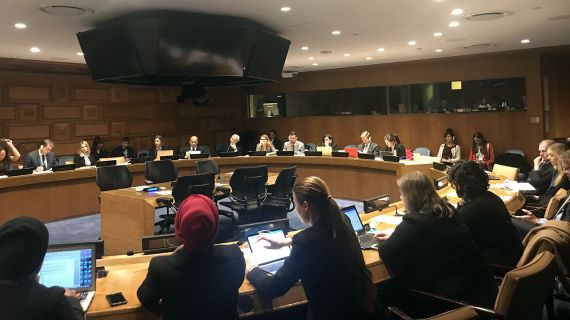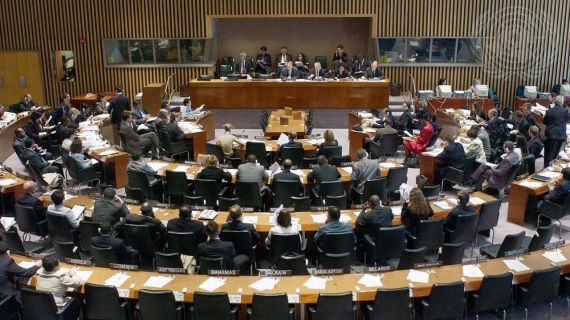The 22nd session of the Assembly of States Parties (ASP) to the Rome Statute of the International Criminal Court (ICC) took place from 4-14 December 2023, at the United Nations Headquarters, in New York. Convened on an annual basis, the ASP (which is composed of representatives from each State Party to the Rome Statute and serves as the ICC’s management oversight and legislative body) addresses concrete matters related to the Court’s functioning, including its budget and policies on cooperation and complementarity. This 22nd session was particularly significant, as it not only concluded with the adoption of eight resolutions, but it also elected six new ICC judges, whose mandate will extend from 2024 to 2033.
On this important occasion, PGA’s Rome Statute Campaign was represented by a parliamentary delegation comprising Ms. Esther Cuesta Santana (Ecuador), Dip. Marwa Abdibashir Hagi (Somalia) and Ms. Arusyak Julhakyan (Armenia). They notably had the opportunity to share their views and perspectives during a side event jointly organized on 8 December by PGA, Global Rights Compliance (GRC), the Coalition for the International Criminal Court (CICC), and generously sponsored by Belgium, Switzerland, the Kingdom of the Netherlands, Liechtenstein, and the Republic of Korea, titled Why Universality Matters: The Importance of ratifying the Rome Statute, its Amendments, and the Agreement on Privileges and Immunities. The event underscored the crucial need for universal ratification and implementation of the Rome Statute, as a pivotal step in holding perpetrators of atrocities accountable. As highlighted by Ms. Mónica Adame, PGA Secretary General, there is an urgency of translating the promise of the law into reality, particularly in the face of escalating violence and ongoing challenges.
In their introductory remarks, H.E. Henk Cor Van der Kwast, Permanent Representative of the OPCW and the ICC, Kingdom of the Netherlands and H.E. Hyun Woo Cho, Deputy Permanent Representative to the United Nations, Republic of Korea stressed the crucial role played by their countries as focal points for universality in the promotion of ratification. Both countries contributed to open a dialogue with non-party States, and assisted them along their path towards ratifying the Rome Statute.
Touching upon the importance of universality, H.E. Piotr Hofmański, President of the ICC and H.E. Silvia Fernández de Gurmendi, President of the Assembly of States Parties, emphasized the benefits for States to join the Rome Statute, i.e., to be part of a system that offers a legal protection against atrocities and upholds the Rule of Law. Additionally, the effectiveness of this system relies on States’ ratification, as it empowers the Court to exercise its mandate and deliver retributive and reparative justice worldwide. In times where the work of the ICC remains jeopardized, there is an urgent need to strengthen collaborative efforts to reinforce the effectiveness and legitimacy of the Court, including by increasing its visibility and addressing any misconceptions. In this context, H.E. Yeghishe Kirakosyan, Armenian Representative on International Legal Issues, pointed at the shared responsibility of States in the fight against international crimes and putting an end to impunity – an important statement as Armenia will become the 124th State Party to the Rome Statute on 1 February 2024, following the completion of its ratification process on 14 November 2023.
Mr. Arie Mora, Communications and Advocacy Manager at the Ukrainian Legal Advisory Group (ULAG), highlighted the challenges faced by civil society organizations in urging Ukraine to join the Rome Statute and emphasized the need for more assertive communication on the importance of ratification.
The event also underlined the necessity to ratify all amendments to the Rome Statute, for this instrument to address the reality of today’s warfare and the evolution of crimes committed in both International Armed Conflicts (IAC) and Non-International Armed Conflicts (NIAC). In particular, H.E. Sandra Lendenmann Winterberg, Deputy Director of the Directorate of International Law, Federal Department of Foreign Affairs of Switzerland and H.E. Olivier Belle, Permanent Representative of Belgium to international institutions in The Hague, shed light on the Amendment to Article 8 of the Rome Statute on intentionally using starvation of civilians in NIAC. With only 13 countries having ratified this crucial amendment, they stressed the need for increased ratification as conflict remains the biggest driver of food insecurity.
Finally, Mr. Matias Hellman, External Adviser at the Presidency of the International Criminal mentioned the direct relevance of the Agreement on Privileges and Immunities (APIC) to ensure the proper functioning of the Court and, therefore, an efficient cooperation system. He called on every State to ensure that they ratify both the Rome Statute and the APIC so that the Rome Statute system can function seamlessly.
On 12 December, PGA was also proud to co-organize another side event titled “War-driven Environmental Damage in Ukraine: Perspectives on the Application of the Rome Statute and the Work of the International Criminal Court.” In collaboration with the Open Society Foundation, International Renaissance Foundation, Environment-People-Law (EPL), the Office of the Prosecutor General of Ukraine, the Institute for Environmental Security (IES), Green Transparency, Citizens for Global Solutions (CGS), World Future Council, World Federalist Movement, Climate Governance Commission, Mobilizing and Earth Governance Alliance (MEGA), it was sponsored by Estonia, Romania, and Ukraine. The event brought together experts, diplomats and actors from civil society organizations to explore the feasibility of prosecuting environmental crimes, particularly in the context of the severe environmental crimes committed by the Russian Federation in its war of aggression against Ukraine. One of the key points of the discussion was notably the destruction of the Kakhovka Dam on 6 June 2023, which led to unprecedented level of pollution and destruction of ecosystems.
Moderated by Ms. Frederika Schweighoferova, Director of PGA International Law and Human Rights Program, the conversation delved into the challenges posed by Article 8(2)(b)(iv) of the Rome Statute, whose high threshold for proving knowledge of environmental damage, excessive and disproportionate harm, represents a challenge to prosecuting such crimes. Furthermore, despite the inclusion of the crime of ecocide in Article 441 of the Ukrainian Criminal Code, misalignment with the definition elaborated by the Independent Expert Panel for the Legal Definition of Ecocide, a lack of relevant jurisprudence, as well as practical challenges in the evidence collection, add further complexity to ensure accountability.
Speakers therefore reflected on the possibility to amending the Rome Statute to include ecocide as a distinct crime. They also called on States to adopt and implement a harmonized definition of the crime of ecocide within their domestic legislations to effectively address environmental crimes.

